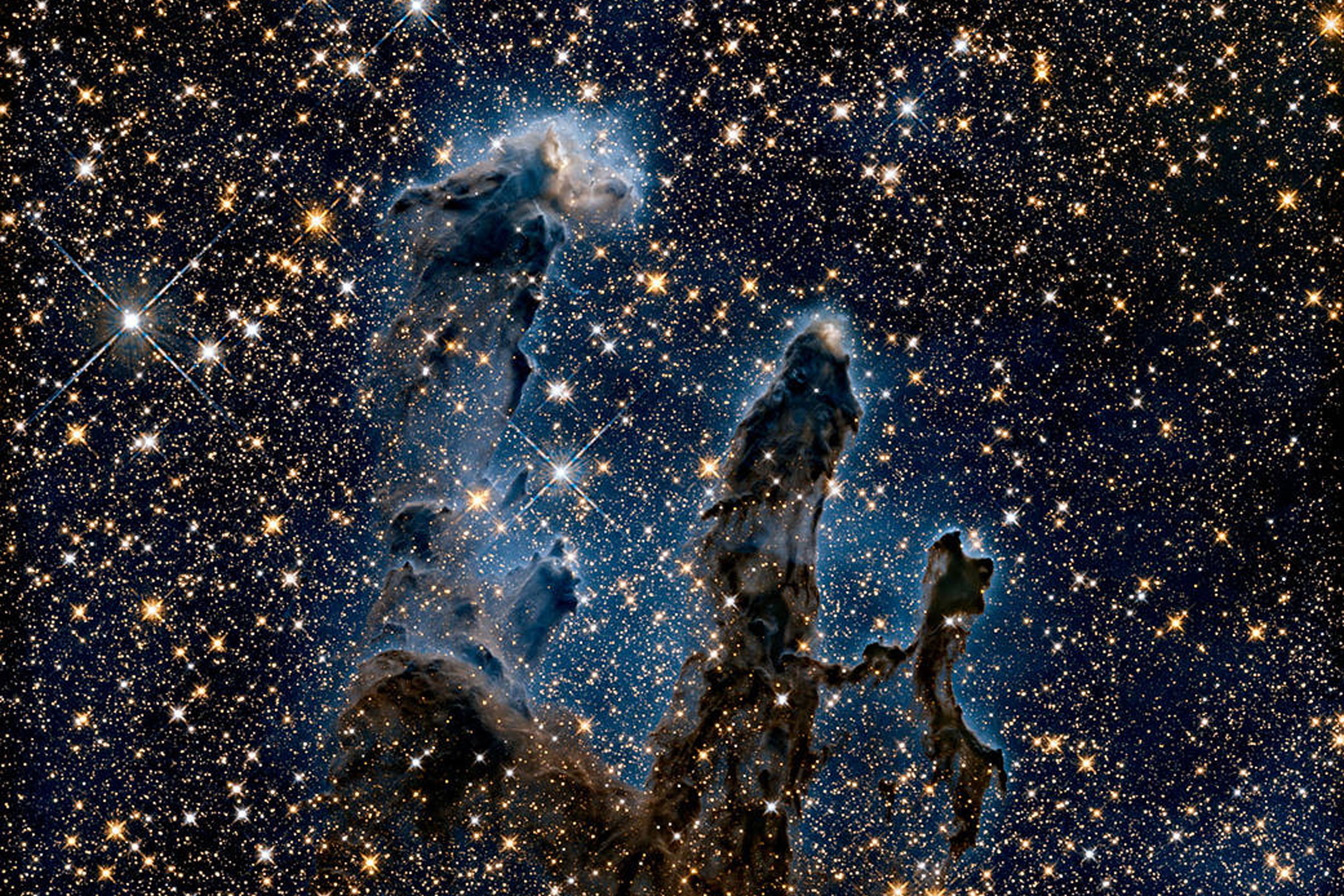- Space
Their study found surface reactions between common space molecules are efficient only with dust
Ryan McDougallSunday 23 November 2025 23:45 GMTComments open image in galleryCosmic dust is found in the ‘Pillars of Creation’ (NASA) (PA Media)
open image in galleryCosmic dust is found in the ‘Pillars of Creation’ (NASA) (PA Media)
Sign up to our free weekly IndyTech newsletter delivered straight to your inbox
Sign up to our free IndyTech newsletter
Sign up to our free IndyTech newsletter
 Email*SIGN UP
Email*SIGN UPI would like to be emailed about offers, events and updates from The Independent. Read our Privacy notice
Cosmic dust particles may be crucial for life's building blocks, pioneering research suggests.
Scientists from Heriot-Watt University, Edinburgh, collaborating with teams from Germany's Friedrich Schiller University Jena and the University of Virginia, US, have demonstrated mineral dust acts as a catalyst. This helps simple molecules form complex, potentially life-sustaining compounds, even in space's vacuum and extreme cold.
Their study, published in The Astrophysical Journal, found surface reactions between common space molecules like carbon dioxide and ammonia are efficient only with dust.
These reactions form ammonium carbamate, a compound thought to be a chemical precursor to urea and other molecules essential to life.
Professor Martin McCoustra, an astrochemist from Heriot-Watt University, said: “Dust isn’t just a passive background ingredient in space.
“It provides surfaces where molecules can meet, react and form more complex species.
“In some regions of space, this dust chemistry is a prerequisite for making life’s molecular building blocks.
“We now know that surface reactions occur efficiently – more quickly – with the dust than without.”
 open image in galleryA space rocket at the International Astronautical Congress at the Scottish and Exhibition and Conference Centre in Glasgow (Danny Lawson/PA) (PA Archive)
open image in galleryA space rocket at the International Astronautical Congress at the Scottish and Exhibition and Conference Centre in Glasgow (Danny Lawson/PA) (PA Archive)In Dr Alexey Potapov’s laboratory in Jena, Germany, dusty sandwiches of thin layers of carbon dioxide and ammonia separated by a layer of porous silicate grains produced by laser evaporation made a realistic stand-in for cosmic dust.
When the samples frozen at minus 260°C (similar to interstellar clouds) and were warmed to about minus 190°C (conditions found as these clouds evolve into protoplanetary disks), the molecules spread through the dust layer and reacted to form ammonium carbamate.
Without the dust layer, the researchers found the icy molecules did not react as well.
The team identified this as an example of acid–base catalysis involving the transfer of protons – the first time such chemistry has been observed under simulated space conditions.
Dr Alexey Potapov said: “The findings suggest that dust grains play a far more active role in astrochemistry than previously thought.
“Floating through interstellar clouds and protoplanetary disks, these particles may provide the micro-environments where molecules meet and evolve into more complex forms.
Prof McCoustra added: “We’ve shown that dust can promote the chemistry needed to build more complex organics, even at extremely low temperatures.
“This could be how nature overcomes the harshness of space to kickstart chemistry that ultimately leads to life.”
The researchers plan to explore whether other molecules can form in the same way, and whether this dust-driven chemistry is taking place today in protoplanetary disks, where new planets are being born.
More about
ScientistsLifeUniversity of VirginiaHeriot-Watt UniversityJoin our commenting forum
Join thought-provoking conversations, follow other Independent readers and see their replies
Comments



